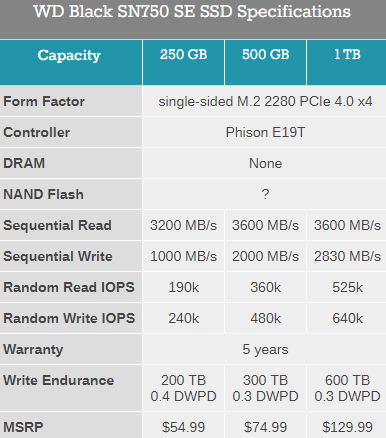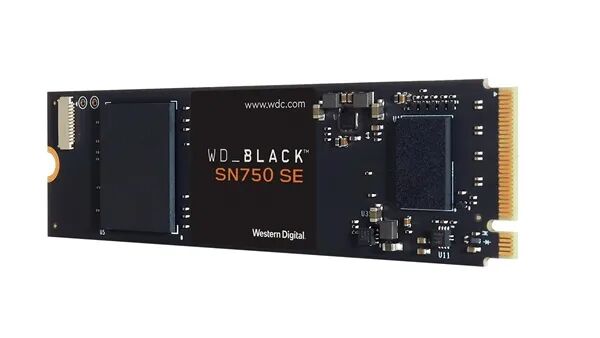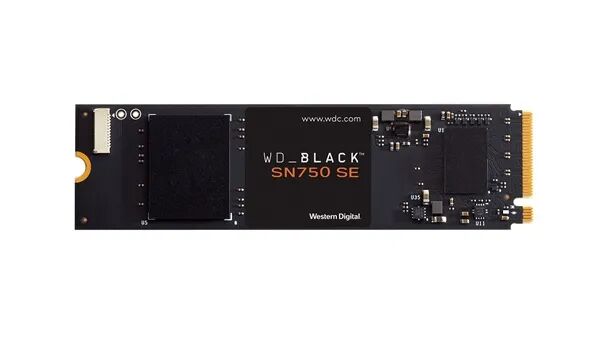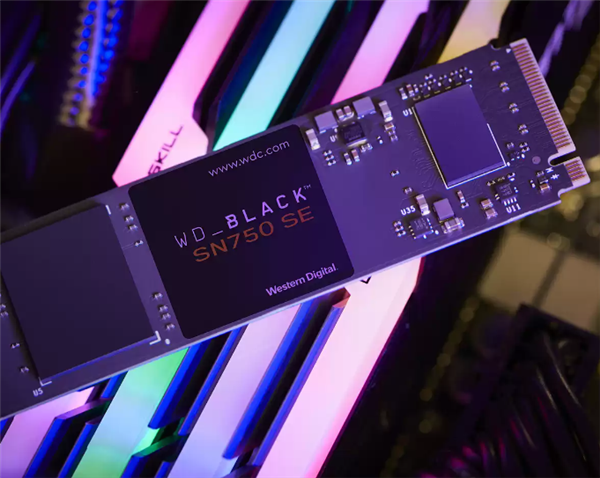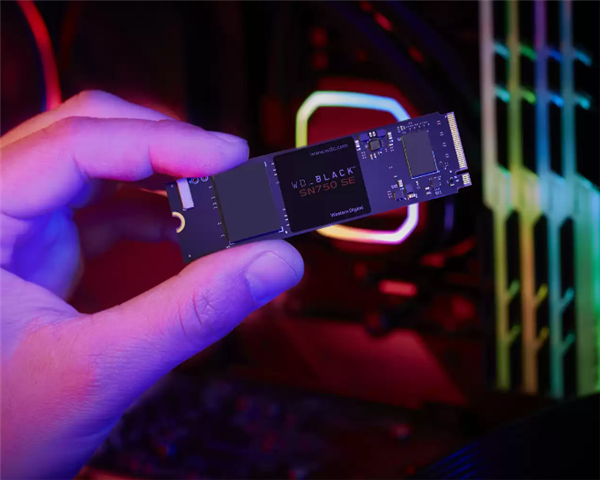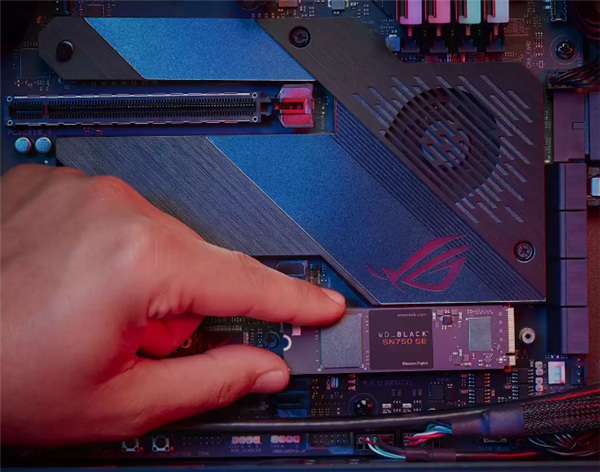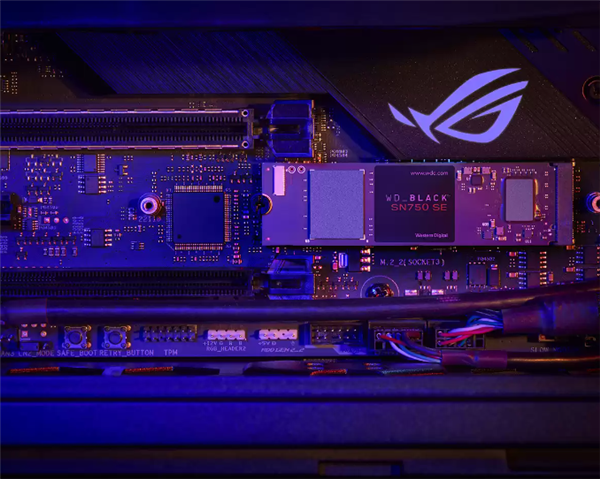Have you started using PCIe 4.0 SSDs?
While PCIe 4.0 SSDs are still in the process of becoming mainstream, Marvell has globally launched the first PCIe 5.0 NVMe SSD controller chip, firing the first shot for PCIe 5.0 solid-state drives.
The controller belongs to Marvell’s newly created Bravera brand under the SC5 product line, which has announced two controllers: the 8-channel MV-SS1331 and the 16-channel MV-SS1333.
We know that PCIe 5.0 doubles the bandwidth compared to PCIe 4.0, so the performance of the new controller naturally increases exponentially.
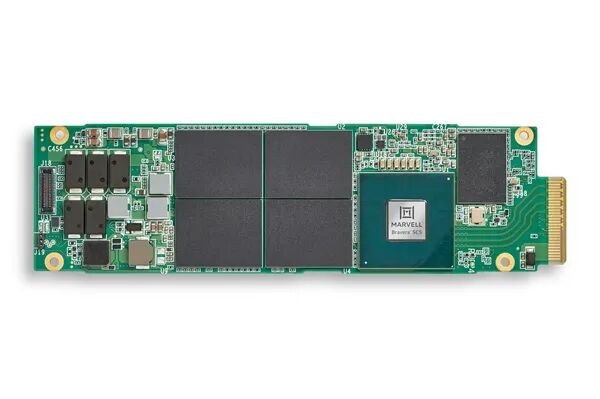
The nominal sequential read speed can reach 14GB/s, with a sequential write speed of 9GB/s, random read of 1.8 million IOPS, and random write of 1 million IOPS.
With such high performance, you might worry about power consumption. In fact, Marvell has achieved a 40% improvement in energy efficiency by introducing a series of new standards and optimizing the architecture. The maximum power consumption of the two controllers is 9 watts and 9.8 watts, with a package size of 20x20mm.
Additionally, the new controller is still based on the ARM architecture, featuring a mix of Cortex-R8, Cortex-M7, and Cortex-M3.
Marvell claims that the product is already available for specific customers, allowing for debugging with either public or self-compiled firmware.
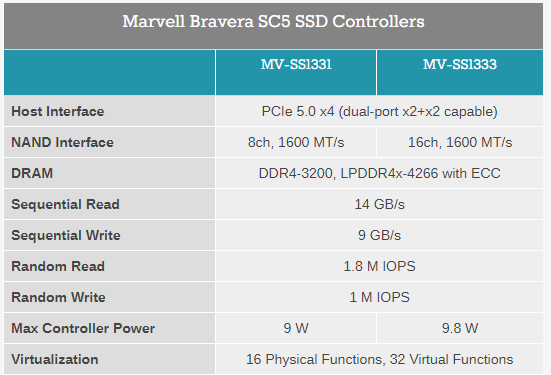
Returning to the present, PCIe 4.0 still has great potential.
Phison’s PCIe 4.0 controller has now set a world record for performance, achieving a speed of 7488MB/s when combined with 176-layer 3D NAND flash, making it the fastest PCIe 4.0 controller globally.
In 2019, Phison launched the PCIe 4.0 controller PS5016-E16 on the AMD Ryzen platform, pushing SSD speeds to 5000MB/s. At the end of last year, they released the second-generation PCIe 4.0 controller PS5018-E18, which achieved sustained read performance of 7.4GB/s and sustained write performance of 7GB/s. Not only did the read speed increase significantly, but the critical write performance also exceeded 7GB/s, making it the only SSD controller to achieve both read and write performance of 7GB/s.
In terms of random performance, the PS5018-E18 controller’s random read and random write both reached 1000K IOPS, a million-level IOPS performance that was previously only available in server-grade SSDs, now easily achievable.
Phison has now announced the actual performance of the new generation PCIe 4.0 SSD paired with 176-layer NAND flash, with read speeds of 7488MB/s and write speeds of 7081MB/s, while 4K random read speeds reached 90MB/s, a 35% improvement over 96-layer flash SSDs.
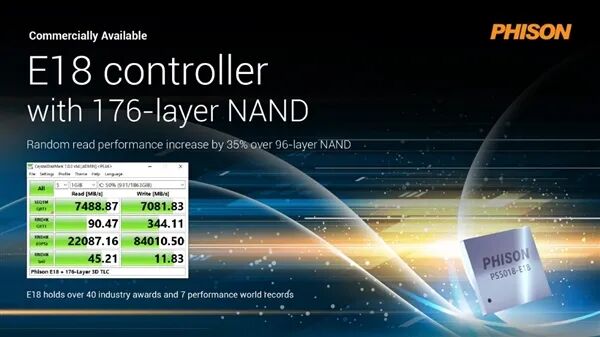
At this year’s Computex exhibition, Phison showcased a new generation of gaming storage solutions, including the PS5021-E21T Gen4 BGA SSD suitable for gaming smartphones, the DRAM-Less PS5021-E21T Gen4 M.2 SSD suitable for mainstream gaming PCs and notebooks, and the PS5018-E18 Gen4 SSD for high-end performance gaming needs, fully meeting the high-speed storage requirements of the gaming market.
Moreover, driven by 5G technology, mobile devices have once again sparked a wave of demand. Phison has also launched the enhanced PS8318 UFS 3.1 controller chip and the ultra-low power PS8232 eMMC controller chip, fully supporting the new generation of mobile device systems.
 Gaming smartphone suitable PS5021-E21T Gen4 BGA SSD storage solution
Gaming smartphone suitable PS5021-E21T Gen4 BGA SSD storage solution
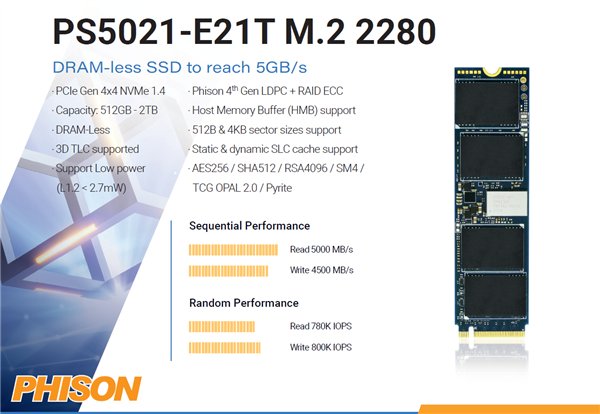 DRAM-Less PS5021-E21T Gen4 SSD storage solution suitable for mainstream gaming PCs and notebooks
DRAM-Less PS5021-E21T Gen4 SSD storage solution suitable for mainstream gaming PCs and notebooks
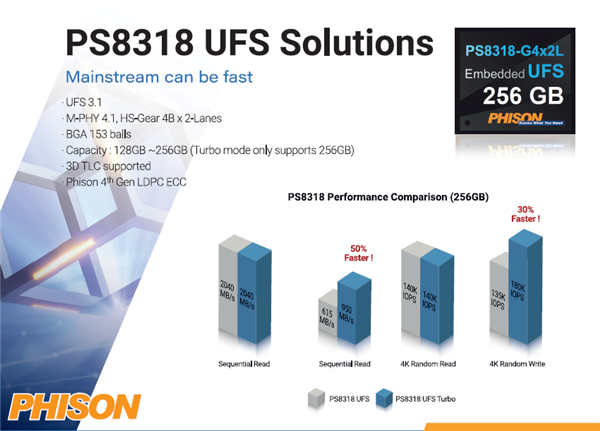 Enhanced PS8318 UFS 3.1 controller chip with Turbo performance
Enhanced PS8318 UFS 3.1 controller chip with Turbo performance
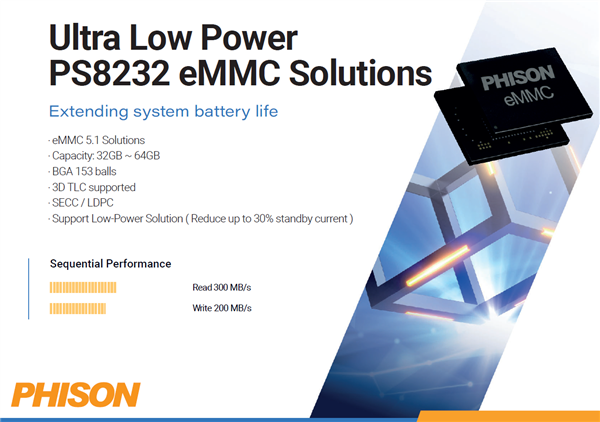 Ultra-low power PS8232 eMMC controller chip extends system battery life
Ultra-low power PS8232 eMMC controller chip extends system battery life
In addition to a series of PCIe 4.0 SSD controller chips, Phison is also actively entering the hard disk mining market, launching the XPlot SSD solution specifically for Chia mining, which can extend the lifespan of SSDs by up to 18 times, with a TBW lifespan of up to 54PB.
Previously, we introduced that Chia is a type of hard disk mining that requires a large amount of disk capacity to mine, needing not only large-capacity HDDs but also SSDs, where speed is also an advantage.
However, SSDs have a write lifespan limit, and long-term high-speed writing can easily exhaust the TBW lifespan. A 512GB SSD can easily fill 256TBW in just 40 days, reaching the manufacturer’s warranty limit, which can lead to problems later on.
To meet the ultra-high lifespan requirements for Chia hard disk mining, Phison has launched the XPlot SSD solution, featuring exclusive LifeXtension technology that can significantly extend the read and write lifespan of SSDs.
According to data released by Phison, the data lifespan of a common 2TB TLC flash hard disk is about 3000TBW. The XPlot technology has standard and Pro levels, with the standard version extending the lifespan to 10000TBW, more than three times the original, while XPlot Pro can extend a 1TB SSD to 27000TBW and a 2TB SSD to 54000TBW, which means a maximum of 54PB of data written, achieving an 18-fold lifespan.
Such write lifespans for flash memory are already comparable to Intel’s Optane drives, making it very practical for users needing Chia mining, although there is no clear news on when related products will be launched.
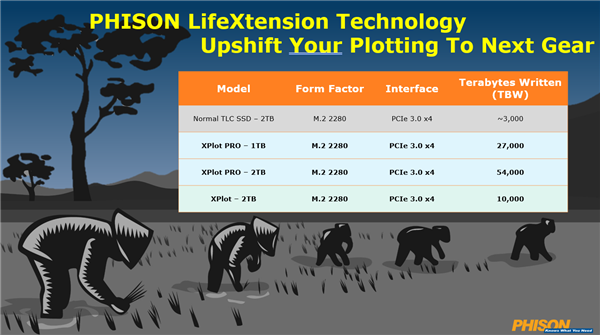
After one or two years of development, PCIe 4.0 SSD products have become increasingly rich, and in addition to various flagship products with high performance and features, many entry-level new products are also emerging.
Western Digital today launched an entry-level PCIe 4.0 SSD from the WD_BLACK family, model SN750 SE.
Clearly, it is the “youth version” of the SN750, downgraded in controller, flash, cache, and other aspects, with a more affordable price.
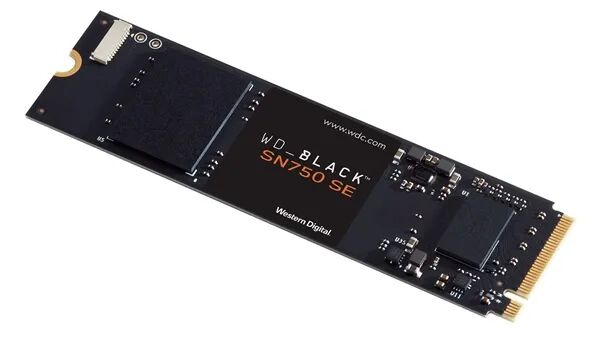
It adopts the standard M.2 2280 form factor, with the controller being Phison E19T, thus not supporting independent caching. The system interface is PCIe 4.0 x4, and the flash memory details are unclear, with smaller capacities of 250GB, 500GB, and 1TB.
In terms of performance, the 1TB model has sustained read and write speeds of 3.6GB/s and 2.83GB/s, with random read and write of 525K IOPS and 640K IOPS, which is basically comparable to high-end PCIe 3.0 x4 SSDs.
The 500GB and 250GB models have significantly lower performance due to their smaller capacities, with sustained read and write being acceptable, but other metrics are quite poor, even worse than many PCIe 3.0 SSDs.
It comes with a five-year warranty, with maximum write volumes of 200TBW, 300TBW, and 600TBW, supporting daily full disk writes of 0.4 times, 0.3 times, and 0.3 times, equivalent to daily write capacities of 100GB, 150GB, and 300GB respectively.
The prices are $54.99, $74.99, and $129.99 respectively, approximately 350 yuan, 480 yuan, and 830 yuan, with pre-sales already started and a formal launch in the summer.
